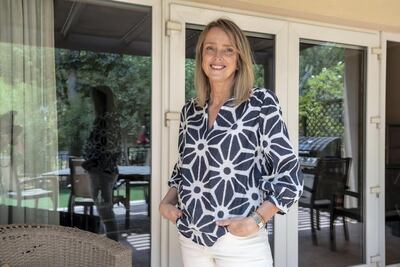Companies across the UAE are adapting to hybrid working models for the long-term as staff begin to return to the office.
Employment experts told The National of a "big shift" taking place, after many employees spent more than a year working from home during the pandemic.
They said companies would have to adapt to a new normal, because staff would expect to be allowed to mix days at the workplace with remote work.
A recent survey of almost 1,100 employers and employees in the region found more than two thirds of employers were operating with a hybrid model.
Of the companies surveyed by Hays recruitment, 69 per cent said they offered remote work options, compared with only 43 per cent before the pandemic.
“We believe hybrid working models will continue in the long term as more and more organisations incorporate remote working options as part of their standard working patterns,” said Chris Greaves, managing director of the Gulf region for Hays.
“Of the 69 per cent of employers who now offer hybrid working models, none specified that they would remove this option and instead they are looking to realise the benefits it can provide, the only exception to this being service-related roles and industries where office working is essential to business.”
Rise of the split working week
The trend echoes the model used by major global employers.
At banking giant JP Morgan Chase, some employees can schedule work from home days – but on Mondays and Fridays they must be in the office, a Wall Street Journal report said. At global commerce firm Salesforce, which employees about 50,000 people, Thursdays are the most popular in-office day – prompting the company to rethink its layout and cater to demand for meeting rooms.
David Mackenzie, managing director of Dubai recruitment agency Mackenzie Jones, said local employers have seen a similar trend.
“We are seeing a big shift in people coming back to the office,” he said.
“A lot of companies are now allowing staff to do three days at home and work in the office for the other two days,” he said.
Mr Mackenzie said there was also appetite among businesses in the region for more face-to-face interaction after months of endless video conferences.
“Businesses won’t grow by staff being constantly at home as you can’t build relationships on Zoom,” he said.
“The informality of work has been lost due to Covid-19 as you don’t have that networking opportunity over a coffee, or chatting to a colleague in the corridor.
“That has to come back, as it’s a key part of how many businesses function.”
Mr Mackenzie said there could be a split between those who were attuned to working from home and others who found it difficult.
“Those who are not good with people will love working from home, and some are also so used to their work-life pattern right now that they might look for another job if work asked them to start coming in,” he said.
Mr Mackenzie said others could not wait to go back to the office because of sheer boredom.
“We’re moving talent around in the UAE at the moment because people have been stuck in their house for the past year and a half staring at a screen,” he said.
“It’s made them realise it’s not the company they want to work for. As soon as something good comes up they are leaving.”
Offices no longer simply 'containers' for staff
A senior figure from one of the region’s leading property companies said the widespread adoption of a hybrid working model was inevitable, with or without Covid-19.
“It is important to note that this trend is something that has not purely stemmed from the pandemic but has certainly been accelerated by it,” said Anthony Spary, head of landlord agency and retail for CBRE.
“From the perspective of both investors and occupiers, office space is now transitioning to become more of a multi-faceted service, rather than just a container for employees.
“The most appropriate model will differ from industry to industry, and will be more than just working from the office or working from home.”

Another of the region’s leading recruiters has already adopted a hybrid model, with employees working from the office three days a week in Dubai’s DIFC and from home the rest of the time.
“This hybrid work model is working well for us as a recruitment company, and globally as a company, our productivity is back to 2019 levels with 70 per cent of our consultants working remotely,” said Jon Ede, regional director in the Middle East for Michael Page.
“Our employees are finding the flexibility beneficial in terms of priority and time management.”
Some companies simply do not want staff to come back to the office, as they look to keep down costs.
“I think companies are starting to ask – do we even need an office any more,” said Claire Donnelly, who runs HR and business consultancy MHC.
“That’s especially the case for SMEs, who will be thinking, ‘If we can work virtually, why do we even need our staff to be in the UAE, when they can work remotely from other countries and save money on gratuity?
“The world is opening up.”









